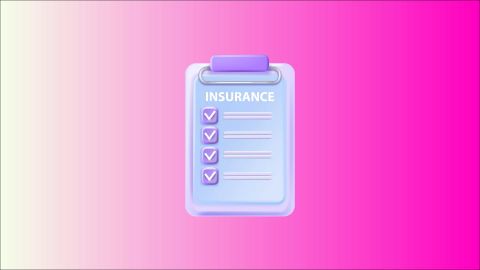Here’s why having a health insurance policy important.
Rising healthcare costs
The cost of medical care is increasing every year. With medical inflation in India growing at 15%, it is essential to have health insurance to secure yourself against these rising healthcare expenses.
Protection against financial uncertainty
Medical emergencies come unannounced and can be financially draining. With a health insurance policy, you can secure yourself from any uncertainties without worrying about the financial burden of paying for medical expenses.
Comprehensive coverage
Health insurance policies cover various medical expenses, such as hospitalisation costs, doctor visits, ambulance services, pre-and post-hospitalisation expenses, and more. Such comprehensive coverage ensures that you receive the best medical care without any financial hindrances.
Tax benefits
Purchasing a health insurance policy also offers tax benefits. The premium paid towards your health insurance policy gets deducted under relevant sections of the Income Tax Act, which reduces your overall tax liability.
Long-term investment
Health insurance policies work as a long-term investment for your health. By paying a nominal premium, you secure yourself and your family against unforeseen medical emergencies for the long term.
Access to quality healthcare
With a health insurance policy, you have access to quality healthcare facilities and services. Most insurance providers offer cashless hospitalisation, where you can avail of medical treatment without paying anything upfront. This ensures that you receive the best medical care without worrying about the financial burden of paying for medical expenses.
Inflation-protected coverage
Health insurance policies provide inflation-protected coverage. This means that your health insurance policy coverage increases every year based on the inflation index. Such a feature ensures that you stay secure against rising healthcare costs.
Personalised coverage
Health insurance policies offer personalised coverage based on your age, lifestyle, and healthcare needs. This means that you can choose a policy that meets your specific requirements, and you only pay for the coverage you need.
Peace of mind
Finally, having a health insurance policy provides peace of mind and reduces stress levels. In case of a medical emergency, you can focus on recovering and getting the best medical care without worrying about the funds.
Important factors to consider while choosing the right type of health insurance plan
Navigating the world of health insurance can feel overwhelming, but selecting the right plan for your needs is crucial. With various types of health planning options available, it's essential to consider several key factors to ensure you make an informed decision. By carefully evaluating your individual circumstances, coverage requirements, and budget, you can find a health insurance plan that provides optimal protection and peace of mind.
Age
Your age plays a significant role in determining the type of health insurance plan that best suits your needs. Younger individuals may prioritize comprehensive coverage with lower premiums, while older individuals might require plans with higher coverage limits and specific benefits for age-related health conditions.
Current Health Condition
Your current health status is a critical factor in choosing a health insurance plan. If you have pre-existing conditions, you'll need a plan that covers those conditions and offers adequate coverage for potential medical expenses. Consider plans with comprehensive coverage and lower waiting periods for pre-existing conditions.
Coverage
Evaluate the extent of coverage offered by different health insurance plans. Consider what medical expenses are covered, such as hospitalization, surgery, critical illnesses, maternity care, and outpatient treatments. Choose a plan that aligns with your healthcare needs and provides sufficient financial protection.
Medical History of Family Members
Your family's medical history can influence your risk of developing certain health conditions. If your family has a history of critical illnesses like heart disease or cancer, consider plans with specific coverage for those conditions or opt for critical illness insurance as an add-on.
Sum Insured
The sum insured is the maximum amount your health insurance plan will pay for medical expenses. Choose a sum insured that adequately covers potential healthcare costs, considering factors like rising medical inflation, your health condition, and your family's medical history.
Waiting Period
Most health insurance plans have waiting periods for certain conditions or treatments. Evaluate the waiting periods for pre-existing conditions, maternity benefits, and specific procedures. Opt for plans with shorter waiting periods if you anticipate needing coverage sooner.
Deductibles
Deductibles are the amount you pay out-of-pocket before your health insurance coverage kicks in. Consider your financial capacity to pay deductibles and choose a plan with a deductible that aligns with your budget and healthcare needs.
Exclusions
Health insurance plans have exclusions, which are specific medical conditions or treatments that are not covered. Carefully review the exclusions list to ensure the plan covers the medical expenses you anticipate needing.
Co-payments
Co-payments are the percentage of medical expenses you share with the insurance company after paying the deductible. Evaluate the co-payment structure and choose a plan with a co-payment percentage that you are comfortable with
Things to consider when buying health insurance plans
Choosing a health insurance policy from a plethora of options available in the market can get difficult. Here are some points that you must consider when buying health insurance plans.
Choose the right insurance plan and coverage for you or your family
Before choosing a health insurance plan, it is crucial to determine which type of policy suits you best. An individual policy implies insurance for a single person, while a family health insurance plan extends the insurance coverage to your immediate family members. Senior citizen plans, specifically designed for elderly individuals, provide adequate healthcare coverage to them. Knowing which type of health insurance policy to choose will help you make the right decision.
Check if the coverages offered cater to your health needs
The ideal insurance coverage for you and your family varies based on several factors, such as your current health status, lifestyle, and healthcare needs. Therefore, it is essential to assess your insurance requirements before deciding. A comprehensive health insurance plan that provides coverage for hospitalisation, pre-and post-hospitalisation expenses, doctor visits, and ambulance services, among others, can be a good starting point.
Check the add-on features you can opt for
Apart from the basic insurance coverage offered, most insurers provide add-ons that provide additional benefits. For instance, some insurers provide critical illness cover that offers protection against life-threatening diseases. Maternity coverage is another add-on feature that covers pregnancy, childbirth, and postpartum care expenses. Knowing which add-on covers you want to opt for can help enhance the coverage of your health insurance policy.
Know the applicable sub-limits
Health insurance policies generally come with sub-limits or capping on specific expenses like room rent, consultation fees, medical tests, etc. Knowing these sub-limits will help you to avoid unpleasant surprises in the form of additional expenses that may not get covered under your policy.
Read all policy inclusions and exclusions
Reading all policy inclusions and exclusions is vital before purchasing a policy. Ensure to go through the terms and conditions of the policy carefully, including the waiting periods and deductibles. This will ensure complete transparency and no surprises later.
Know the claim settlement procedure
Claim settlement procedures differ among insurers. You can either make a cashless or reimbursement claim. Cashless settlement allows you to get medical treatment without paying anything upfront, while reimbursement requires you to pay the bills initially and seek reimbursement later. Knowing the claim settlement procedure help in availing health insurance policy benefits easily.
Know about the medical check-ups required before policy acceptance
Insurers generally require medical check-ups before accepting a policy. Based on the result, the insurer decides on the coverage offerings.
Choosing the right health insurance plan requires due diligence. Assess your medical requirements and budget before planning to buy a health insurance policy. Considering all the above points make the right decision and choose the best health insurance plan for yourself and your family.
Conclusion
In today’s unpredictable world, choosing the right health insurance plan isn't just a smart financial move—it’s a powerful act of self-care. Whether you're a young professional, a parent planning for your family’s well-being, or a senior seeking post-retirement peace of mind, the right coverage can mean the difference between delayed treatment and immediate care, or between financial stress and freedom.
From individual plans and family floaters to senior citizen policies, maternity, or critical illness covers—there’s a plan built for every stage of life and every unique need.
Take the guesswork out of it. Compare health insurance plans on Bajaj Finance Insurance Mall and get a quote in just 2 minutes. Plans with Rs. 10 lakh coverage start at only Rs. 9.3/day!





